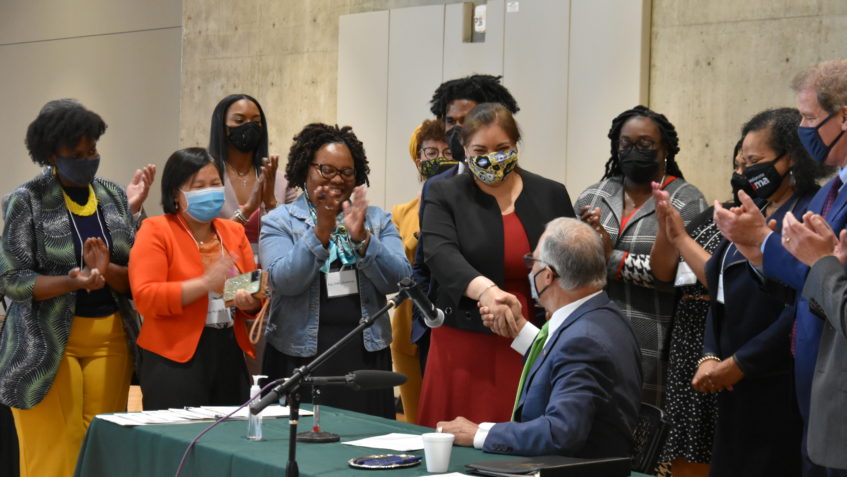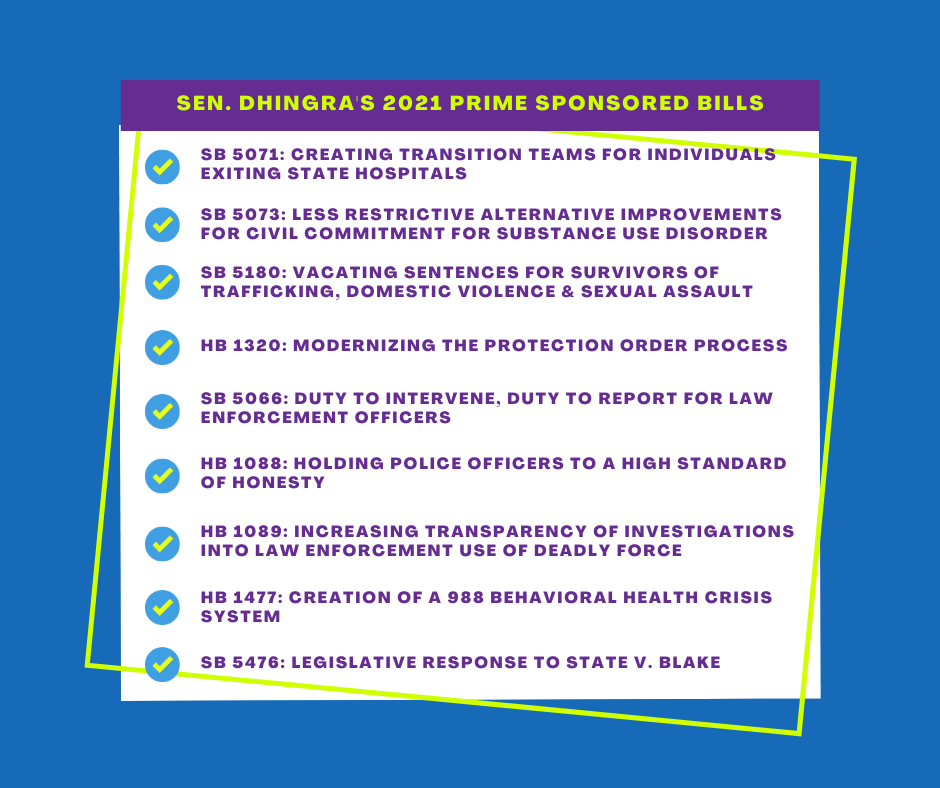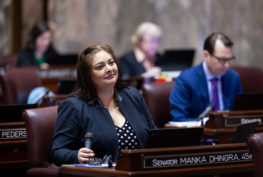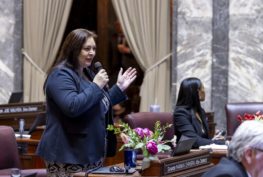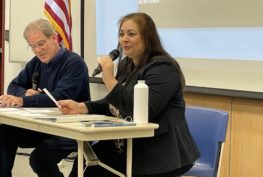Dear neighbors,
I’m proud to say that in 2021, despite holding a mostly remote legislative session, we passed significant laws that will help improve the lives of Washingtonians. We made landmark progress on the issues that you all care about—pandemic relief and recovery, police accountability, behavioral health, childcare, equity, climate change, and many more.
Opening up committee hearings to remote testimony created a more open and transparent session. We were able to hear from more people who have traditionally not been able to drive to Olympia to testify. Adding an option to provide written testimony meant that the number of Washingtonians weighing in on legislation more than doubled from the most recent 105-day session in 2019.
Nine bills I prime sponsored in the Senate passed the Legislature—all but one of them on a bipartisan vote—and have been signed into law:
- SB 5066 empowers the vast majority of our police officers who hold themselves to high ethical standards by providing them with protocols, training and support. It requires officers to intervene if they observe a fellow officer using excessive force and gives them training on how and when to intervene. It also creates a duty for officers to report any wrongdoing by a fellow officer so we can build trust between our communities and law enforcement officers.
- HB 1088 (SB 5067) addresses the credibility of testimony by law enforcement officers. It requires prosecutors to develop and adopt written protocols to shed light on officers on prosecutor-held “Brady” lists because of any history that could call their credibility into question. The bill also requires departments to inquire whether new hires are on Brady lists kept by their prior jurisdictions.
- HB 1089 (SB 5069) increases transparency in investigations of police use of deadly force. It gives the State Auditor’s Office authority to review cases to assure that investigations were conducted according to the highest standards.
- HB 1477 (SB 5209) improves the state’s suicide and behavioral health crisis response system by implementing the National Suicide Hotline Designation Act, which designated 988 as a new crisis hotline number. Having a behavioral health crisis is not illegal. It is a cry for help, and it deserves an immediate and robust response from appropriate medical services, with coordination from law enforcement only when safety is an issue.
- HB 1320 (SB 5297) modernizes, harmonizes and improves the efficacy and accessibility of laws governing civil protection orders. This bill creates more access to justice for victims and provides needed reform for those who are vulnerable.
- SB 5180 streamlines the process for survivors to vacate sentences they received for offenses that were the result of being a survivor of sex trafficking, domestic violence or sexual assault.
- Two bills help refocus our forensic behavioral health system on treatment. SB 5071 better coordinates care for people who have been civilly committed as they transition to less restrictive alternatives. SB 5073 empowers a person’s treatment team and integrates mental health and substance use disorder treatment.
- SB 5476 responds to the state Supreme Court decision that struck down the statute addressing drug possession. The bill encourages diversion to treatment in lieu of incarceration for simple possession and builds on our state’s public-health approach to substance use disorder. We invested nearly $90 million to significantly expand treatment infrastructure. A public health approach will enable our loved ones to get the help they need when they need it in order to lead productive lives.
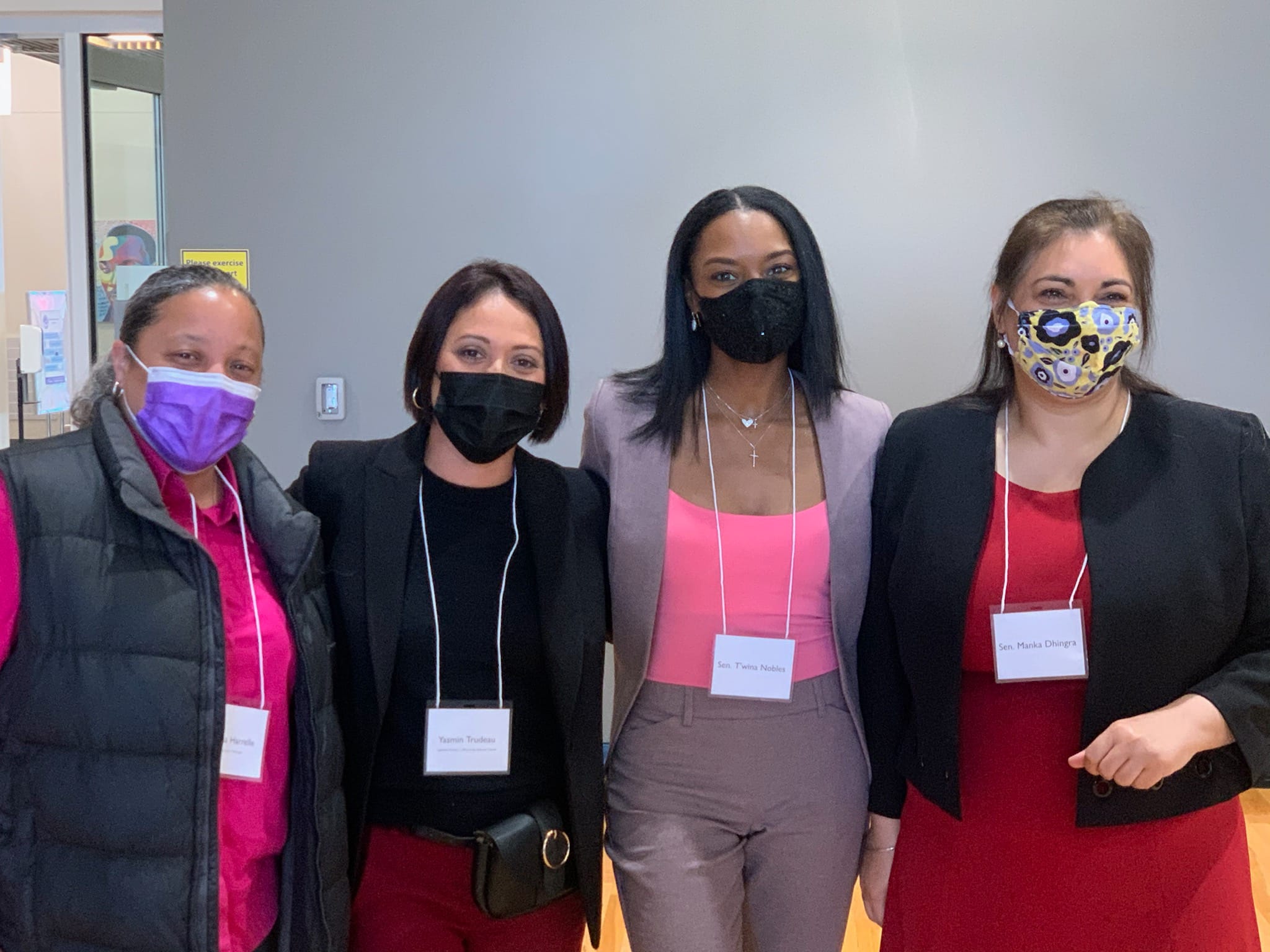 At the signing of police accountability bills at the Eastside Community Center in Tacoma
At the signing of police accountability bills at the Eastside Community Center in Tacoma
Stay in touch
As always, please feel free to reach out to my office directly with any questions or concerns. Stay safe and take care.
Sincerely yours,

Sen. Manka Dhingra
45th Legislative District
Deputy Majority Leader
